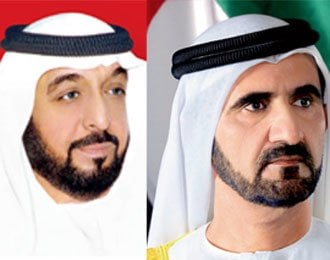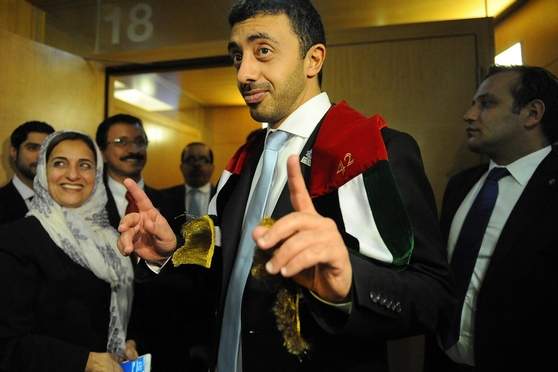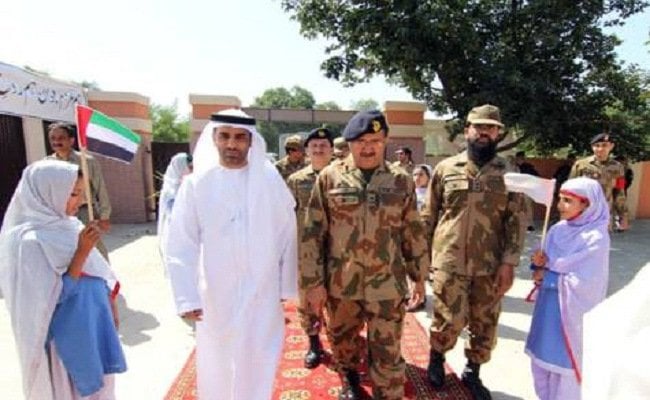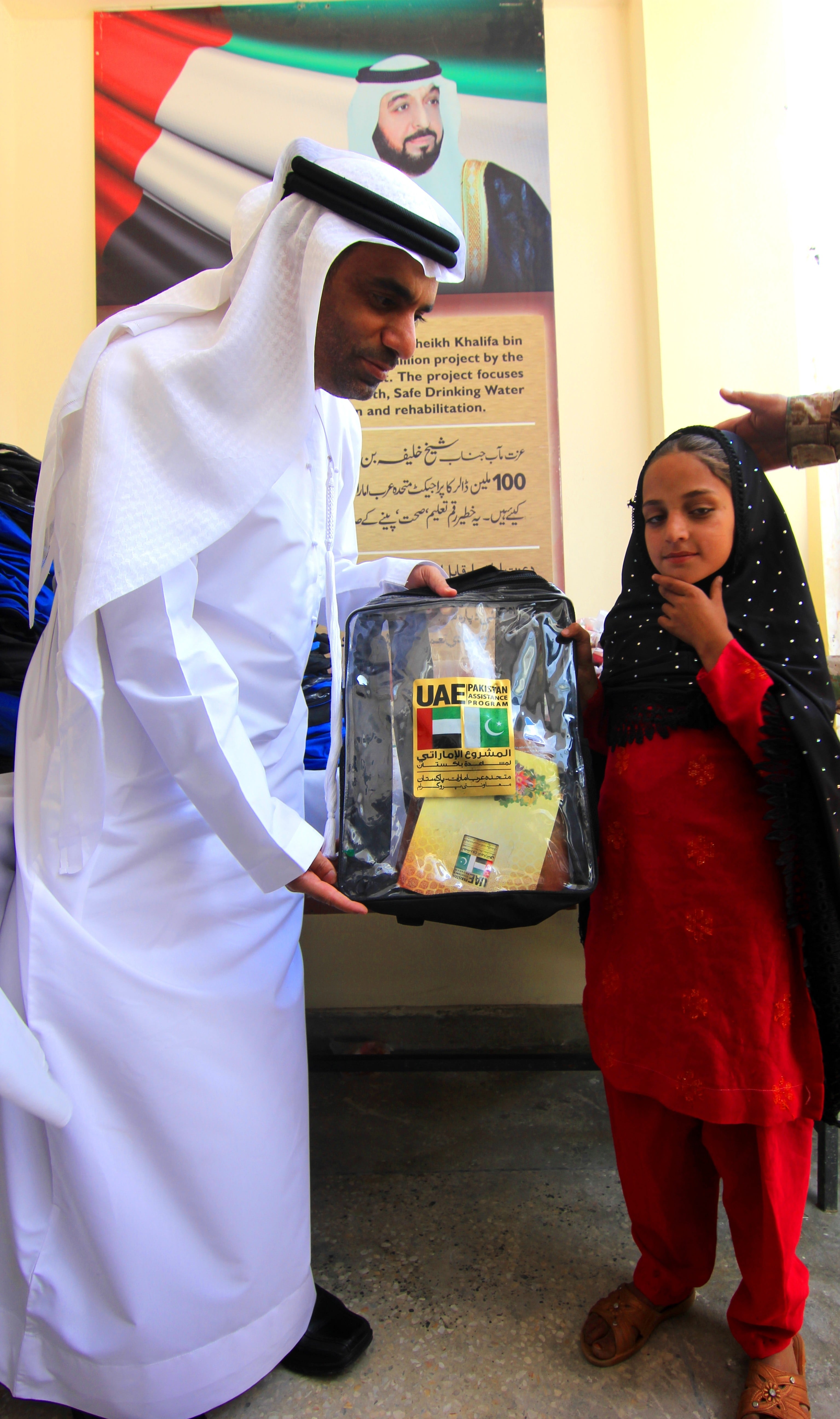Mehmood Ul Hassan Khan
Charity is a noble cause and the UAE has been one of the main countries of this kind of economic development around the globe. UAE has the unique model of giving. It has multiplier socio-economic effects. It makes a comfort zone to all the conflicting communities, groups and people. It brings some delight to all the people living under any deadly military operation or natural calamity around the globe. It is people-friendly and anti-poverty measure which has been one of the main pillars of the UAE foreign policy’s global humanitarian assistance drive. President His Highness Sheikh Khalifa bin Zayed Al Nahyan is a pioneer in humanitarian work around the globe.
UAE Unique Model of Philanthropy
The UAE model of philanthropy is not based on exchange of goods or services. It is totally deviated from the “warm glow” theory and “perfect altruism”. It is based on pure humanity and different humanitarian assistance programs. Charities can nurture local economic growth as well as social capital. According to many latest research studies/reports charities are not just part of the solution to existing Europe’s social problems; they also have a role to play in solving our economic problems too. Moreover, its extended spirits for the wellbeing of underprivileged communities and struggling people with harsh geography, conflicts, and natural calamities are paying dividends.
UAE Generous foreign Assistance Drive’s Multiplier Effects
The UAE does not provide conditional aid or wait for a return. The world has already witnessed the fall-out of the conditional foreign assistance starting the unending game of socio-economic benefits, geo-political maneuverings and above all securing geo-strategic plus-points. World has been divided into communism and imperialism poles resulting misery, political chaos, societal struggle and meltdown of economies. Many countries of Africa, Asia, and even Latin America are the prime examples of conditional foreign assistance. But now UAE has its own unique model of foreign assistance which is based purely on humanity, sacrifice, generosity and above all cooperation. It has been distributing generous foreign assistance beyond the parameters of religion, ritual, race and color. According to UAE official data, Pakistan received Dh354.1 million during 2012.
UAE Global Humanitarian Assistance Programs
The government of the UAE under the visionary leadership of his President His Highness Sheikh Khalifa bin Zayed Al Nahyan has been rigorously engaged in many diversified programs of humanitarian assistance in the different parts of the world and “the UAE’s project to assist Pakistan” (UAE-PAP) is one of the prime examples. It has been gigantic effort “turning tears into smiles”.
UAE government, charities and its people generously sponsored different humanitarian assistance programs around the globe. It extended humanitarian assistance related activities in Philippine, Australian, New Zealand, Palestine, Libya, Iraq, Yemen, Sudan, Bosnia and Herzegovina, Thailand, Afghanistan and the last but not the least Pakistan. UAE is now the second largest non-DAC donor of humanitarian aid since 2004.
Main Pillar of the UAE Foreign Policy
It has been one of the salient features of UAE foreign policy since 1971. The leaders of UAE always stood first to lessen the sufferings of the struggling people by sending teams and relief goods in the country. According to UAE Foreign Aid Report 2010 out of a total Dh 310.7m disbursed to Pakistan in 2010, Dh 258.4m was spent on humanitarian assistance, with the largest tranche Dh 211.4m coming from the UAE Government.”
Significance of UAE-PAP
Upon the directives of H.H. Sheikh Khalifa bin Zayed Al Nahyan the President of UAE, “the UAE-PAP was initiated in January 2011 at a total cost of US$100 million for the reconstruction of infrastructure damaged by devastating floods and natural calamities in Khyber Pakhtunkhwa province, Bajaur and South Waziristan districts of the tribal belt. The projects were started to provide better life to the local people by creating jobs. The said projects focused education, public health, roads, bridges and supply of water treatment plants and networks.
Tools for Sustainable Development
Till now, over 100 projects worth millions of dollars focusing on major areas of social development including health, education, water and infrastructure have been completed which are significantly contributing to the development of these sectors in these areas.
UAE-PAP Development Plans
According to a report of the UAE-PAP, the program includes the building and equipping of 53 state-of-the-art educational projects, 43 schools and 10 colleges. It has worked along a comprehensive redevelopment plans that take into account the harsh geography and the rough weather conditions of the region.
a. Education
Furthermore, “the UAE-PAP” inaugurated another new preparatory school in Kalam village, Khyber Pakhtunkhwa, for further supporting of educational development in the province. It is hoped that the newly established Haryati School will serve 225 male and female students from prep to primary levels. The multi-purpose school building consists of eight class rooms, a computer lab and administration bloc.
b. Development of Infrastructure
Sheikh Khalifa Bridge has been rebuilt over Swat River damaged by flood. The 330-metre bridge serves 70 thousand persons which represents an architectural icon and a tourist destination with its unique design that resembles Abu Dhabi’s Al Maqta’ Bridge and its historic fort.
Sheikh Khalifa Bin Zayed Al Nahyan Road, funded by Khalifa Bin Zayed Al Nahyan Foundation, is one of the most important infrastructure projects in the South Waziristan. It is a strategic project stretching from the city of Wana to Angor Adda. The 50-kilometers road, with its 5 over passing bridges, is of strategic importance for transportation between Pakistan and Afghanistan.
c. Health
In the field of health, the said projects embrace the building, equipping and maintenance of 7 hospitals and clinics in Khyber-Pakhtunkhawa and South Waziristan. Two of these, Sheikh Khalifa bin Zayed Al Nahyan Hospital and Sheikha Fatima bin Mubarak Hospital, are specialised maternity and paediatric hospitals to provide health-care and emergency services for women and children. Moreover, the (UAEPAP) launched the final phase of its seven valuable projects relating to healthcare in the different parts of the country i.e. Bajaur, Khyber Pakhtunkhwa and South Waziristan.
According to its officials these projects would be an icon in the field of health care in these areas. The projects are constructed and completed at a cost of over US$17.1 million. The directorate of the UAEPAP is hoped that it would provide best possible available health care system/facilities to people living in war-ravaged areas of the KPK province. State-of-the-art hospital in Bajaur has now been completed while the other six healthcare centers/units/hospitals are expected to be completed during the current year 2013. The said projects include four modern hospitals, two clinics and a medical institute in Pakistani remote areas which lack the basic healthcare services.
These projects stand for a noble cause of protecting the children, women and men from the virulent diseases, seasonal infectious illness and natural catastrophes if any. It would provide them first-aid facilities, nursing, surgery, child health care along with all other diversified medications and health care facilities. Special attention is given to old-aged people and infants. Two of these four hospitals, the 100-bed Sheikh Khalifa Specialised Hospital are under construction in Saidu Sharif, Khyber Pakhtunkhwa province, and the 50 bed Sheikha Fatima bint Mubarak Hospital in Shulam area of South Waziristan. The modern medical institute will serve two hundred male and female students. The facilities will be fully-equipped to treat patients in the poor areas.
Moreover, the Sheikh Khalifa Hospital will be first in the Khyber Pakhtunkhwa province having ambulance helicopter. Hopefully, it would enhance medical efficiency by reducing distances and crucial time limits to reach at the doors of the hospital through the facility of ambulance helicopter.
The Sheikha Fatima bint Mubarak Hospital in Shulam features South Waziristan’s first dialysis centre, first preventive medicine centre and first children’s immunization center. It would introduce the concept of healthy living in the people living in these areas where health consciousness is neglected. It would control the occurring of the fatal diseases relating to kidney, liver, gastro, stomach, digestive system, gut and many more.
The 70-bed Bajaur hospital consists of a dialysis centre, an electro encephalograph (EEG) unit, two quarantine units, two operating rooms as well as wards for chest diseases, skin diseases and emergency and outpatient clinics to serve a population of 800,000 people of the underprivileged region. According to medical practitioners, the said hospital would keep the people healthy by taking care of their sinking and dysfunctional hearts. The chest diseases consisting of respiratory system disorder, minor deformities, and of course the inefficiency of the chest wall and muscular action of the intercostal muscles and diaphragm along with obstacles in proper ventilation will be checked thoroughly at the said hospital.
d. Clean Drinking Water
With the aim of providing clean water and protecting people against diseases and epidemics, about 64 drinking water supply projects have been accomplished, 44 of them in Khyber-Pakhtunkhawa and 20 in the South of Waziristan region.
e. Ramadan Campaign
On the eve of holy month of Ramadan 2013 to implement the directives of President His Highness Sheikh Khalifa bin Zayed Al Nahyan, the supervisory official/team of the UAE’s project to help Pakistan in the country announced a noble initiative, distributing 2,400 tons of food stuff among 30,000 families of internally displaced people (IDPs) living in camps being victims of horrible series of floods and war against terrorism.
According to statement of the said project official/team, the food assistance, worth over $US 1.5 million was distributed among IDPs families in Jalozai Camp, which is the largest refugee camp.






SKYLARK ENGINEERING has provided Water & Waste Water Treatment Systems & Services since its inception in 1980
SKYLARK ENGINEERING PAKISTAN is dedicated exclusively to solving the pure drinking water needs of the communities and process/utility water for industries. Using the principal of ‘best practices’, we’ve brought together the best design;
With the best available technologies, provide a cast effective and practical solution.
We design, fabricate and install customized plant as per the requirement of the Client. For this purpose we are using following technologies:
· Rapid sand Filtration
· Activated carbon Filtration
· Cartridge Filtration from 200 micron to 0.2 micron
· Reverse Osmosis Filtration membrane technology
· Ultra Filtration Technologies
· Nan filtration Membrane Technology
· Water De-lionization and softening wit lon Exchange Resin technology
· Ultraviolet Sterilization technology
· Ozonnation Sterilization technology
· PLC control for complete automation of the plant operation, etc
We are providing our services to the Following industries:
· Drinking Water/Mineral Water Industry
· Sugar Industry
· Beverage Industry
· Textile Industry
· Pharmaceutical industry
· Leather Industry
· Chemical Process Industry, etc.
We are equipped, able and committed to deliver the Qualitative Products and Services to fulfill the needs of required quality of WATER
For Further detail visit our website ( http://www.skylarkengineering.com )or contact Mr Yasir Akram in Pakistan
0314-51 52 800
0345-88895 96